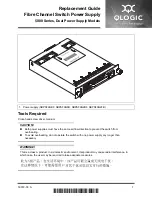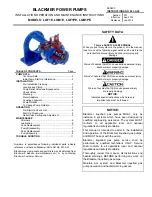
User Manual
2253i / 2253iX
AMETEK
California Instruments
88
Step #
(data point)
Volt
VSlew
Frequency
FSlew
Dwell
0
70.00
MAX
360.0
MAX
0.100
1
110.00
100.0
440.0
MAX
0.900
2
130.00
MAX
240.0
800.00
0.250
3
90.00
53.3
240.0
MAX
0.750
4
90.00
MAX
460.0
MAX
1.000
5
110.00
MAX
400.0
MAX
0.800
6
88.00
MAX
400.0
MAX
0.200
7
110.00
MAX
400.0
MAX
1.000
Table 4-2: Sample Transient List
4.7.7 Waveforms Function List
The FUNCTION field available in each transient list event setup menu may be used to dynamically
switch waveforms during transient execution. This allows different waveforms to be used during
transient execution. Waveforms may be switched without the output of the source being turned off. For
three phase configurations, each phase has its own waveform list so different waveforms may be
programmed on different phases during transient execution.
Figure 4-13 illustrates the concept of using different waveforms at different steps in a transient list. In
this case, the change was programmed to occur at the zero crossing. Any phase angle can be used to
start the transient execution however. To keep the phase angle synchronization, the dwell times have
to be set to an integer number of periods. Over long periods of time, phase synchronization may get
lost due to timing skew between the waveform generator and the transient state machine.
Figure 4-13: Switching Waveforms in a Transient List
4.7.8 Transient Execution
Figure 4-14: TRANSIENT Menu
A transient list can be executed from the TRANSIENT menu. To start a transient list, position the
cursor on the TRAN ST field as shown in Figure 4-14 and press the ENTER key. Transients may be
aborted by pressing the ENTER key again while on the same field as the field changes to ABORT
while a transient execution is in progress. For short duration transients, this will likely not be visible, as
the transient will complete before the screen is updated. Longer duration transients however may be
aborted in this fashion.
















































